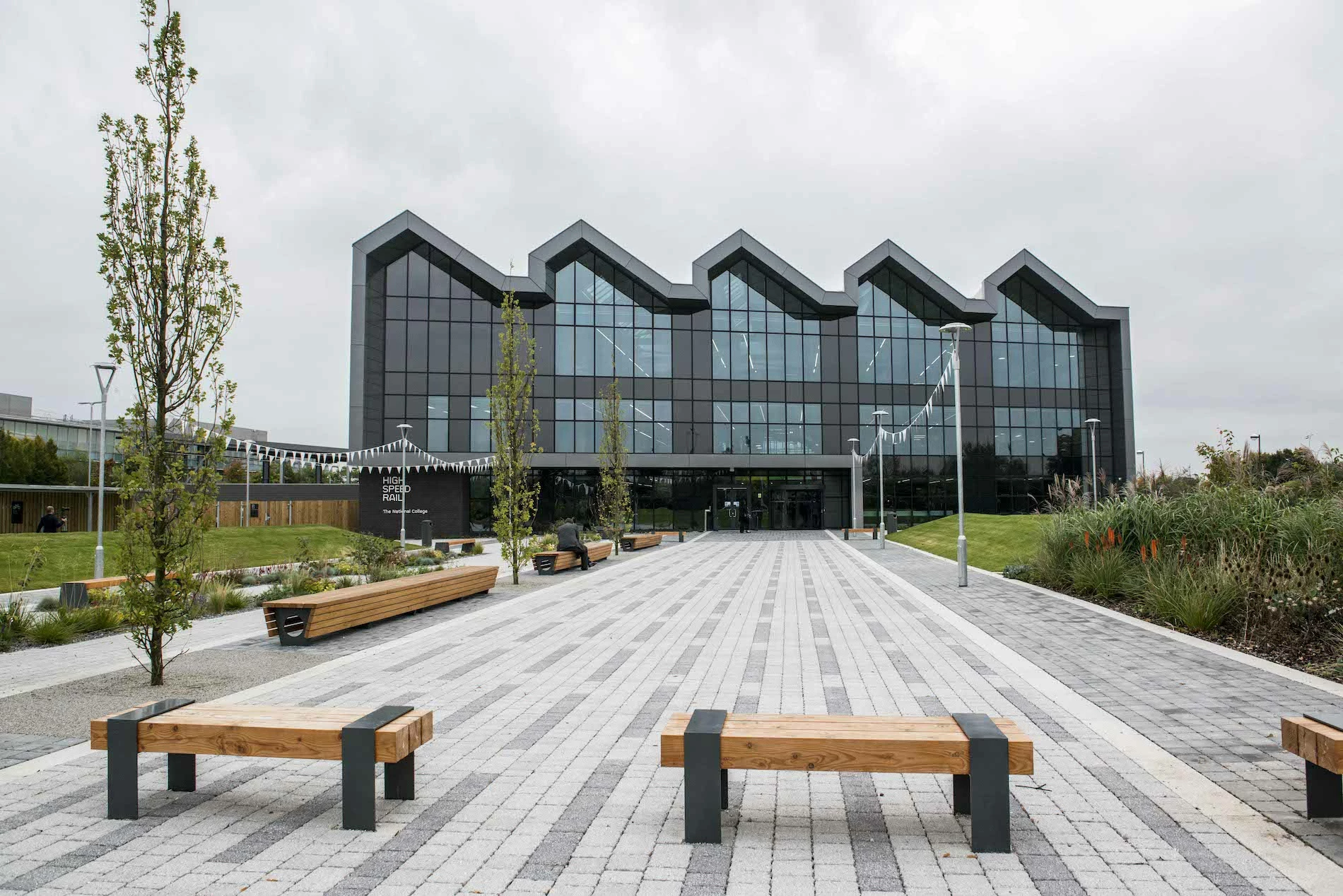
Why Yorkshire holds the key to Britain’s future rail generation
Is a Yorkshire-wide devolution deal ever going to work? When will a Northern Powerhouse be achievable in our region? Is this government really ‘strong and stable’? Will Leeds United ever get back to the Premier League?! These are just some of the questions I constantly get asked, and ask myself, on a daily basis. As for the answers….I just don’t know.
Unfortunately my precognitive abilities just aren’t good enough for a simple yes or no, but it doesn’t take psychic to realise that the future is looking extremely bright for the workforce of the next generation in Yorkshire.
Over the last month our region has seen major investments take place into education institutions. As a result, I want to put a spotlight on the importance of investing in the employees of the future and raise the question as to how this is helping solving the skills gap in the UK.
Earlier this month, the region welcomed the opening of the National College for High Speed Rail in Doncaster. This couldn’t have come at a better time.
With billions of pounds being invested in modernising Britain’s rail network and transport infrastructure, it is estimated that over the next five years businesses in Britain will need 182,000 new engineers every year.
To support such a large workforce, this new employer-led college is undoubtedly going to play a major role in supplying industries with skilled workers for years to come. With a focus on training the next generation in engineering, design, planning, manufacturing and construction sectors, the college is expected to prepare 1,200 learners a year.
As well as reducing the skills gap, it is also equally important to consider replacing existing jobs and creating new ones. And as it was recently reported that one in five rail engineers are currently aged over-55, the importance of Doncaster’s National College for High Speed Rail cannot be undervalued.
In addition to the launch of the National College for High Speed Rail in Doncaster, the University of Leeds has pledged to invest £10m to develop a dedicated centre for high speed rail technologies and system integration.
This new Institute for High Speed Rail and System Integration will specialise in high speed rail planning, design, construction and manufacturing, and include a high speed railway infrastructure and vehicle system test facility.
The centre aims to optimise the efficiency, performance and safety of high speed rail by focusing on foundations, track, traction systems, braking, energy harvesting, sensor technology and digital systems.
Along with Doncaster’s National College for High Speed Rail, this centre will also help address the skills gap to support rail industry growth. Undergraduate and postgraduate courses will be created to support industry demands.
Editor’s Analysis
The UK is going to be investing £12bn per year in rail infrastructure, with new UK projects in the pipeline worth a total of £88bn. High speed rail investment is predicted to be over £380bn by 2022.
It is estimated that Britain’s move into high speed rail and HS2 is set to create 25,000 new jobs including 2,000 apprenticeships.
Careers in this industry will become much more sought after, but Yorkshire will be the epicentre of this workforce and help train thousands of jobs for years to come.
I als believe that a workforce already trained to operate a high speed railway, will allow the region to fully benefit from the economic boom each phase of the development of HS2 will generate.
For instance, Leeds will be the location for HS2’s Yorkshire Hub. The area is targeted for economic growth from the HS2 construction project, with the HS2 rolling stock depot also set to be located to the east of Leeds.
As well as reducing the skills gap, investing in employee-led institutions creates new jobs, boosts supply chains and ultimately attracts more inward investment.
If the government is truly committed to boosting the Northern economy and creating a Northern Powerhouse, the continued growth of Yorkshire’s future rail workforce may well prove the key.
Please feel free to share your thoughts in the comments section below.
Looking to promote your product/service to SME businesses in your region? Find out how Bdaily can help →
Enjoy the read? Get Bdaily delivered.
Sign up to receive our popular Yorkshire & The Humber morning email for free.








 Ready to scale? Buy-and-build offers opportunity
Ready to scale? Buy-and-build offers opportunity
 When will our regional economy grow?
When will our regional economy grow?
 Creating a thriving North East construction sector
Creating a thriving North East construction sector
 Why investors are still backing the North East
Why investors are still backing the North East
 Time to stop risking Britain’s family businesses
Time to stop risking Britain’s family businesses
 A year of growth, collaboration and impact
A year of growth, collaboration and impact
 2000 reasons for North East business positivity
2000 reasons for North East business positivity
 How to make your growth strategy deliver in 2026
How to make your growth strategy deliver in 2026
 Powering a new wave of regional screen indies
Powering a new wave of regional screen indies
 A new year and a new outlook for property scene
A new year and a new outlook for property scene
 Zero per cent - but maximum brand exposure
Zero per cent - but maximum brand exposure
 We don’t talk about money stress enough
We don’t talk about money stress enough